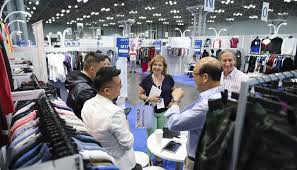US and Chinese textile industry entrepreneurs recently gathered at the China Textile and Apparel Trade Show in New York, exploring new opportunities to strengthen cooperation, adapt to changing global fashion trends and respond to bilateral trade uncertainties. The 20th edition of the show was held along with other textile expos, attracting thousands. Although facing uncertainties over US-China trade tensions, most US companies are still looking for cooperation opportunities with Chinese businesses at the expos. Chinese companies are not content with the 54.6 million tonnes of fibres China processed in 2018, accounting for half of the world’s total, and the $276.73 billion worth textiles and apparel the country exported—36 per cent of the world’s total, according to a news agency report. According to the China National Textile and Apparel Council, Chinese firms are proactively shifting toward automation and smart production through technological innovation, and nurturing indigenous brands to move up the value chain.
Meanwhile, US industry executives are deeply concerned about the negative impact of US-China trade tensions and uncertainties on their businesses, according to the 2019 Fashion Industry Benchmarking Study, prepared by Sheng Lu, associate professor at the University of Delaware in collaboration with the US Fashion Industry Association (UFIA). As many as 63 per cent of respondents said the US tariff action against China raised their sourcing cost in 2019. As companies are moving sourcing orders to Bangladesh, Vietnam and India, the average price of US apparel imports from these main alternatives to China have all gone up by more than 20 per cent in the first five months of 2019 year on year, the study found. Despite the lingering tariff issues, China will remain a dominant textile and apparel supplier for the US market in the foreseeable future, because China does not have a strong competitor in the variety of products it can make, the study added.

